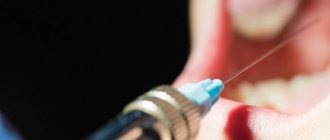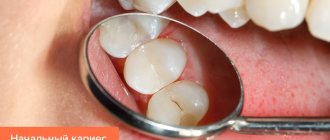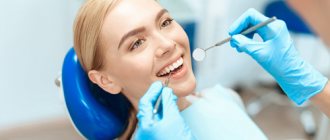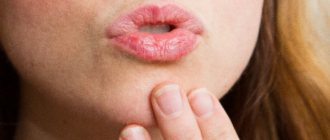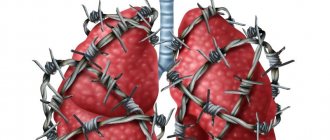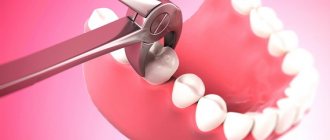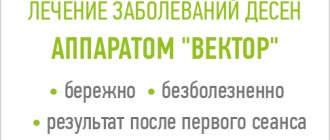Trismus is a spasm of the chewing muscles or their involuntary contraction. As a result of trismus, the jaws become closed and it is extremely difficult to open them. Usually the problem lies in impaired muscle function and tone, and this, in turn, can be associated with various diseases. It is very difficult to get rid of spasms of the jaw muscles on your own, so it is important to seek help from a dentist - he will assess the condition and refer you to specialists if necessary.
The mechanism of trismus occurrence
The chewing muscles set our jaw apparatus in motion. A sudden muscle contraction, accompanied by a strong closure of the jaws, limitation of the movement of the lower jaw, temporary loss of the ability to speak and eat, is called trismus. Strong clenching of teeth often causes breathing problems.
Excessive muscle tension leads to hardening. The disease can become a factor in a significant decrease in the quality of life and deterioration of the psycho-emotional background. A person’s appearance changes, the digestive tract organs suffer, so it is important to see a doctor as soon as possible. Without timely help, your general health may deteriorate, and it is also necessary to find out the causes of spasms.
Ask a Question
Prevention of bruxism: how to help yourself
By prevention we mean measures that prevent dental hypertonicity and bruxism in adults, because without finding the cause and monitoring a specialist, treating them at home is an unsafe activity, as with any disease. So if you notice alarming symptoms, your first step is to get diagnosed and get a plan to comprehensively eliminate this problem.
You may need the help of several specialists (neurologist, dentist, gastroenterologist, ENT doctor, psychotherapist), because bruxism occurs in different people for very different reasons. You may be prescribed courses of physiotherapy, taking certain medications (for example, magnesium supplements), but all this, of course, is very individual.
Self-help measures are helpful if you discuss them with your doctor. For example, you can do a light relaxing massage against bruxism in the area of the chin and temples. There are also a number of exercises that can help relieve muscle spasms; it is useful to repeat them regularly before bed. Relieve general stress: sleep enough hours, walk more in the fresh air, reduce the amount of coffee and strong tea, take relaxing baths with herbs, avoid anxious situations.
All this will help consolidate the results of complex professional treatment and forget about unpleasant symptoms.
Types of trismus and diagnostic methods
There are two main types of spasm of the masticatory muscles:
- Unilateral. Most often it is associated with an inflammatory process or injury to the mandibular joint and adjacent tissues. The result of unilateral pathology is a displacement of the lower jaw to the side when opening the mouth, as well as facial asymmetry.
- Bilateral. The cause of the disease is neuralgia and common infectious diseases. With this type of trismus, the jaws close together with a slight movement of the lower jaw back. There is an inability to open the mouth, difficulty speaking and eating.
To diagnose trismus, the doctor will find out information about previous diseases, operations, injuries, collect anamnesis, and listen to complaints. External examination is supplemented with radiography and other methods of clarifying the diagnosis.
Botulinum therapy as one of the methods for treating hypertension and bruxism
Botulinum toxin type A, which is used in medicine and cosmetology, is able to relieve spasms and relax overstrained muscles, specifically reducing their activity or immobilizing them completely. But not forever, but only for a certain period of time - during this time the body adapts to new circumstances and stops overstraining a certain area. That is, the therapeutic effect for a diagnosis such as “bruxism” lasts for a long time, which is confirmed by numerous reviews from patients.
How it works?
Botulinum toxin type A is a neurotoxin produced by the bacteria Clostridium botulinum. It blocks nerve impulses from the central nervous system to muscle fibers. That is, in fact, the drug paralyzes a certain muscle without transmitting motor commands from the brain to it.
In medicine and cosmetology, it is used in ultra-small and highly purified forms - that is, it is not poisonous or toxic to the body!
The drug is injected into clearly defined points in order to affect only a specific muscle and not affect the work of others. The dosages are harmless, and the blocking is reversible. Over time, the drug is completely eliminated from the body - usually this takes from 5 to 7 months. Gradually, neuromuscular conduction in the area is restored, and mobility returns to the muscle - but since it has “rested,” the spasmodic fibers are smoothed out, and the body adapts and normalizes the load.
Botulinum toxin only relieves hypertonicity and allows the muscle to relax. This is the basis of its well-known cosmetic effect - smoothing out wrinkles by blocking the work of facial muscles. That is, it is wrong to think that you can “pump yourself up” with botulinum toxin preparations - they do not in any way increase the volume of soft tissues.
To relieve excess tension in the masticatory muscles, we use the drug Botulax for intramuscular injection with 99% active substance content, thereby increasing the speed of onset and duration of the therapeutic effect. And thanks to the high degree of purification of the drug, the risk of adverse reactions is minimized. The dosage and course are selected by the doctor strictly individually!
Causes of trismus
The problem of spasm of the lower jaw can be associated not only with damage to nerve endings and reflex contraction, but also with other factors:
- infectious and inflammatory diseases of the oral cavity;
- previous injuries;
- unsuccessfully performed anesthesia of the teeth of the lower jaw;
- arthrosis of the mandibular joints;
- pathologies of ENT organs;
- irritation, inflammation of the trigeminal nerve;
- purulent processes, etc.
In addition, trismus can be a consequence of pseudobulbar palsy, meningitis, epilepsy, calcium deficiency, etc. Symptoms may first appear after injury, temperature changes, or sudden hypothermia. Sometimes the jaw cramps after opening the mouth wide, for example, after removing a wisdom tooth.
Implantation for bruxism
Implants can be placed if an integrated approach has been taken to the procedure. In cases where the dental system has not worked correctly for a long period of time, dentists perform treatment using complex implantation.
If excessive tension in the jaw muscles was caused by a reason such as psychosomatics, then the patient is referred for examination to a specialized specialist. Only then can you begin to restore your teeth.
Symptoms and manifestations
Trismus of the masticatory muscles is accompanied by limited mobility of the joints responsible for closing the jaw. The inability to unclench them can be of a different nature - from partial to complete immobilization. The mouth may open 40, 20, or 10 mm or less, depending on the severity of the condition. Spasmodic contractions can worsen your overall health, cause headaches and other consequences.
One of the manifestations is inflammatory processes due to jamming of the jaws, in this case there is an alternating reduction of the sides of the face. Less commonly, trismus is associated with tumor processes, accompanied by a noticeable increase in formation and increased symptoms. With viral infections, elevated body temperature is often observed.
Why is botulinum therapy not enough to eliminate hypertension?
You need to understand that Botox treatment in dentistry, like orthopedic treatment of bruxism (that is, the manufacture of special protective mouth guards for teeth during bruxism), is only an additional, and not an independent method. Botulinum therapy protects against the consequences of muscle strain - that is, visible relief will actually occur after administration of the drug. The spasm will go away, the muscles will relax, you will stop involuntarily clenching your jaw and thereby injuring your teeth. But as soon as the effect of botulinum toxin wears off, the problem may return, albeit to a lesser extent.
Of course, if it was just a formed habit based on nervousness, and the causes of bruxism are psychosomatic or neurological, then during treatment you have a good chance to completely get rid of it. But if the source lies in other pathologies and disorders, then you also need to address them: take care of your posture, solve bite problems, restore damaged teeth, replace low-quality dentures, etc. And botulinum therapy will become an effective comprehensive measure.
Treatment methods
Patients with hypertension should receive help as soon as possible, since trismus can accompany a hypertensive crisis. It is also important to call an ambulance if you suspect rabies and tetanus. In the absence of severe concomitant pathologies, you can consult a dentist.
Knowledge of how to relax the jaw muscles on your own is necessary for self-help directly during spasm - but in the future, examination and consultation with a specialist is necessary. A warm compress can help with spastic jaw closure. Its use is not recommended if there are foci of inflammation in the oral cavity, for example, with pulpitis, periodontitis, periostitis, or suspected abscess. A light massage of the muscles can also help to relax, but remember that the movements should be light, and in no case should you put any force on the muscles.
The approach to the treatment of trismus includes a detailed analysis of the condition and a search for the causes of the disease. To eliminate the causes, it may be necessary to remove the inflamed tooth or surgical treatment of purulent inflammation. In case of a fracture, the doctor will immobilize the jaw.
Physiotherapeutic methods are widely used as a supplement. Laser, ultrasound therapy, electrophoresis with the use of painkillers can be used.
Antibacterial therapy is used for the inflammatory nature of spasms, for example, inflammation of the trigeminal nerve.
Treatment of spasm of the masticatory muscles often includes the use of sedative medications if the pathology was caused by diseases of a neurological nature. However, a neurologist prescribes such drugs.
Also, if muscle tone disorders are suspected of being infectious, vaccination is mandatory. Infection with the rabies virus requires immediate attention.
How to properly treat trismus of the masticatory muscle?
Treatment of the problem involves:
- immobilization of the jaw by applying a bandage or splint;
- eliminating the underlying cause of trismus (disease or specific condition);
- taking neuropsychic stimulants and sedatives;
- a course of taking muscle relaxants;
- a course of antibiotics (for inflammatory processes);
- physiotherapy;
- peace and release from physical work.
If the patient’s condition is severe, observation in a hospital is necessary under the supervision of a maxillofacial surgeon, neurologist, traumatologist, etc.
After eliminating acute symptoms, a person is recommended a special diet:
- plenty of fluid;
- chopped food;
- vegetables and fruits;
- natural juices.
If it is impossible to eat normally, food is supplied through a tube, and liquid is supplied through the skin.
To restore the functions of the masticatory muscle, the patient is recommended to perform special therapeutic and preventive exercises.
It is important to completely cure trismus, and not just suppress its symptoms. If the cause is not removed, the problem will reoccur. Spasms put a powerful strain on the teeth, gums, and nervous system. It is very important to contact an experienced dentist with a surgical profile, who will help cure the disease and tell you what to do in emergency situations. The 32 Dent network of clinics in Moscow employs specialists who will provide such comprehensive assistance for trismus of the masticatory muscle and other serious problems.
If you have a problem similar to that described in this article, be sure to contact our specialists. Don't diagnose yourself!
Why you should call us now:
- We will answer all your questions in 3 minutes
- Free consultation
- The average work experience of doctors is 12 years
- Convenient location of clinics
Single contact phone number: +7
Make an appointment
Measures to prevent trismus
To prevent trismus, it is important to sanitize the oral cavity in a timely manner: remove teeth that cannot be restored, treat caries and inflammatory gum diseases. If prosthetics are necessary, you should contact only qualified specialists, and orthodontic structures should be replaced in a timely manner. The presence of neurological diseases requires constant monitoring by a neurologist.
If you have trismus, you can get advice from dentists at STOMA clinics. If pathology of the temporomandibular joints is detected, experienced specialists will prescribe an additional examination and give recommendations aimed at eliminating the causes of the disease. You can make an appointment for an examination by calling the specified phone number or using a special form on the website.
Disadvantages of treating bruxism with Botulax
It is important to choose an experienced, certified doctor who has trained and has official approval for botulinum toxin injection therapy - this is a rather complex procedure with its own subtleties. If the rules of storage, selection of dosage and administration technique are not followed, complications may occur. And if hematomas, bruises or slight swelling basically go away on their own, then difficulties with swallowing and chewing should be eliminated together with a doctor.
Our doctors have been trained and certified - treating hypertonicity with botulinum therapy in our clinic is completely safe
Why the jaw and teeth often cramp – possible reasons
Usually they say that teeth are cramping when they want to describe discomfort when the enamel is suddenly exposed to temperature - if a food or drink is too cold or hot. Weakened enamel can give an acute reaction even if the temperature difference is not so significant, as well as to spicy, sour and sweet foods, that is, to chemical irritants.
But there are other possible causes, some of which are pathological disorders that require appropriate therapy. The most common causes of the symptom are listed below.
Thinning enamel
Enamel is a durable coating that protects the internal tissues and structures of the tooth from external aggressive factors. When it becomes thin and noticeably weakened, it leads to increased sensitivity. A person begins to experience attacks of acute pain from hot and cold, spicy, sweet and sour. Discomfort also occurs during hygienic cleaning or when biting into hard foods. There are quite a few reasons for this phenomenon, so to find out the etiology you will have to undergo examination by a specialist. Among the common prerequisites, dental experts identify the following phenomena and conditions:
- genetics,
- acute deficiency of vitamins and microelements,
- abnormalities of the jaw system, including malocclusion,
- Bruxism is an involuntary clenching of the jaws at night during sleep, which inevitably leads to pathological abrasion,
- Frequent whitening using aggressive agents, violation of the technique of performing the procedure are common causes of hyperesthesia of the anterior incisors.
Frequent teeth whitening can lead to sensitivity.
The above factors gradually lead to abrasion of the enamel. Over time, this can cause aching teeth and other unpleasant sensations.
Cracks on the enamel surface
Chips and cracks usually occur due to injuries and impacts, as well as constant excessive mechanical stress, for example, as a result of the habit of chewing the tip of a pencil or biting off a thread. Damage to enamel often occurs when brushing too vigorously with a hard-bristled brush. Temperature changes in food and drinks also negatively affect the condition of hard tissues and can lead to the formation of cracks.
Cracks in teeth can cause this symptom
On a note! If it cramps some time after tooth extraction, the cause often lies in accidental nerve damage, which can happen both during the procedure itself, if it was complex, and during the administration of anesthesia. If the symptom does not go away for a long time, it is better to consult a specialist for advice.
Bruxism, jaw surgery and even inaccurate yawning - all this can lead to frequent attacks in which the jaw also cramps. Here you will need the help of a neurologist. To correct chips and cracks, aesthetic restoration is carried out, and to strengthen the enamel, remineralization and fluoridation are carried out.
Pathologies of gum and periodontal tissues
Inflammatory diseases of the gums and periodontium, both acute and chronic, often lead to frequent attacks of aches, including in the jaw. This symptom is especially common in pathological conditions aggravated by purulent processes. The waste products of pathogenic microorganisms accumulate in the thickness of the mucous membrane, provoke inflammation, gradually destroy healthy tissues and at the same time create excessive pressure on them. In addition, with gum disease, the root region of the molars is often exposed, making the enamel especially susceptible to sudden temperature changes and chemical irritants.
Periodontitis causes pain and discomfort
Malfunctions of the digestive system
The condition of the gastrointestinal tract has a direct impact on the health of our teeth and enamel in particular. When digestion fails, hard tissues quickly weaken, become sensitive, and the acid-base balance in the oral cavity is disrupted, which leads to the formation of a favorable environment for the proliferation of bacteria and the development of caries.
Frequent stress
Neuroses, stressful conditions, severe overexcitation - all these factors can lead to rather chaotic symptoms, behind which it can be difficult to identify the true cause. A strong emotional outburst can even provoke inflammation of the facial nerve, and the pain also spreads to the jaw. In neurotic conditions, pain can wake a person right during sleep1. In such a situation, the help of a neurologist and psychotherapist is required.
Stress has a detrimental effect on health
Colds
The answer to the question of whether teeth may be coming together due to reasons not directly related to the state of the enamel is already obvious - there are quite a few potential prerequisites, and not all of them are related to the current state of the enamel. So, for example, sinusitis and laryngitis often negatively affect the tissues of the oral cavity, and with influenza and sore throat, the infection can even penetrate the dental nerves, provoking quite severe attacks.
Hormonal imbalances
Hyperesthesia is a common occurrence during pregnancy, especially in the first trimester. Serious changes occur in a woman’s body, particularly hormonally. At first, there is often a sharp decline in vitamins and microelements, which causes the enamel to weaken and become hypersensitive. A similar situation occurs in women during menopause. Preventive remineralization sessions, as prescribed by the dentist, will help protect the enamel until hormonal levels normalize.
Pathologies of the cardiovascular system – angina pectoris
Attacks of angina are sometimes accompanied by discomfort in the jaw and drying out of the mucous membrane. In such cases, teeth often come together, and the provoking factor can be simple fatigue, sitting in one position for too long, headaches, migraines, or increased nervous excitability. In such a situation, it is important to relax and unwind. If an attack causes serious discomfort, it is better to seek medical help.
Joint diseases - arthritis
Inflammation of the temporomandibular joint provokes quite severe pain, which can occur for no apparent reason. With age, the joints in our body wear out, and constant physical activity leads to their deformation and the development of pathological processes. Here you will need the help of a rheumatologist or orthopedist.
The cause of the pathology can also be joint disease
Carious processes
If the pain and aches are localized in a limited area, it may be due to caries. Usually, a whitish spot first appears on the surface of the enamel, which quickly darkens and gradually turns into a cavity. Pathological processes destroy hard tissues, causing them to lose their protective functions. All this leads to the appearance of discomfort and moderate aching pain at first, which only becomes stronger over time. In this case, the pathological focus can be localized in the root region and remain hidden under the gum - cervical caries. The dentist can detect the problem during a visual examination.
Tooth decay causes discomfort and pain
Reason 3: neurological problems
Muscle cramps can quite easily be explained by psychosomatics, especially if you have been in a state of tension or fatigue for a long time, experienced stress, severe anger or fear, or were physically and mentally exhausted. The presence of mental disorders or inflammation of the ternary nerve (in particular applicable to the lower jaw) can also explain why the jaw cramps.
Stress can lead to facial muscle cramps
In this case, treatment should be prescribed by a psychotherapist or neurologist. It is possible that you will have to focus on taking sedatives, and it is also important to ensure peace of mind, get more rest, and get rid of disorders in any of their manifestations (unfavorable environment at work and at home)
Video: Myoarthropathy
Psychosomatic and neurological disorders
Disturbances in the functioning of the nervous system often provoke functional disorders of organs and vital systems of the body. Psychosomatic and neurological disorders provoke groundless spasms against the background of prolonged emotional stress. When the muscles relax, numbness occurs.
At first, a person does not attach serious importance to his feelings, without thinking about why, in a state of anger, the face, neck, shoulders, torso are tense, and fear fetters the legs and abdomen so that it becomes difficult to breathe. This happens on a subconscious level and signals possible danger.
You can help yourself by trying to relax your jaw with soft massage movements.
Other manifestations
There are cases when, against the background of muscle spasms of the jaw apparatus, a person complains of stuffy ears. Such clinical symptoms require consultation with a specialized specialist and most likely indicate the following diseases:
- chronic tonsillitis;
- lesions of the soft tissues of the larynx;
- tumor formations in the nasopharynx of various origins;
- neuralgic attacks.
Sometimes a headache is added to cramps and ear congestion.
Those who observe these complex manifestations in themselves should give up the habit of resting their chin with their hand, as well as communicate on a mobile phone, pressing the device between the neck and the auricle.
Recommendations
If this phenomenon occurs against a background of elevated temperature, you should urgently go to the surgeon. This may be an exacerbation, complicated by internal suppuration. The only correct action is surgery.
If the pain is sharp and boring, you will need to be examined by a neurologist. Apparently the trigeminal nerve is affected.
For malocclusions that cause bruxism, the patient will receive real help if the dentist installs splints and dentures. This way you can stop the progression of the disease and prevent it from developing even stronger in the future.
And finally, if the pain is constant, not too sharp and aching, there is a high risk of cancer. It is extremely important to stop its progression in time and begin emergency treatment.
Thus, the main advice is the help of professionals. And the sooner the better.
Attention - facial expressions!
After complex treatment, patients are recommended to use medicated mouth guards at night. They are made individually by the orthodontist. The pads reduce pain in the joint, an unpleasant feeling of heaviness, fatigue in the masticatory muscles, neck muscles, and normalize mouth opening.
In order to prevent this very annoying nuisance from happening again, you need to avoid active conversations while eating, an excited manner of speaking when a person does not notice what is happening with his facial expressions, as well as hypothermia, which can provoke inflammation in the joint, which makes him more prone to to incorrect movements, more vulnerable.
Why does jaw pain occur?
Read more
Diagnostics
Early cases of hemifacial spasm are sometimes difficult to distinguish from facial myokymia, tics or myoclonus, which may be caused by pathological processes in the cerebral cortex or brainstem. In such cases, neurophysiological testing is the most valuable diagnostic method.
Wide and variable synkinesis on eyeblink tests and high-frequency discharges on electromyography (EMG) with associated clinical manifestations are diagnostic criteria for hemifacial spasm. Stimulation of one branch of the facial nerve can spread and cause a response in the muscle innervated by another branch. Synkinesia is absent in essential blepharospasm, dystonia or epilepsy. Needle myography shows irregular, short, high-frequency burst potentials (150-400 Hz) of motor units that correlate with clinically observed facial movements.
Visualization methods
Magnetic resonance imaging is the diagnostic method of choice when there is a need to exclude compression effects. Angiography of the cerebral vessels is generally of little value in the diagnosis of hemifacial spasm. Ecstatic blood vessels are rarely identified, and these vessel findings may be difficult to correlate with nerve effects. Performing angiography and/or magnetic resonance angiography is typically used to perform surgical vascular decompression.
Reason 4: injuries to the jaw system
Fractures and dislocations due to accidents, falls or other circumstances (for example, playing dangerous sports) are unlikely to go unnoticed by you. Such injuries will be accompanied by severe pain, swelling, the formation of hematomas and bruises.
Even a small dislocation of a joint, injury to the spine or jaw can lead to unpleasant consequences: when you yawn, you will feel a cramp under your chin, spasms will naturally begin to bother you during and after eating (unpleasant muscle contractions will be especially noticeable when chewing solid food), and everything In addition, frequent migraine attacks will also occur.
Jaw injury may cause problems
During treatment and rehabilitation from injuries, pay attention to your diet and try to minimize the consumption of hard foods, as they cause incredible muscle tension when chewing.
With frequent muscle spasms for no apparent reason, it is important to exclude oncological diseases localized in the area of the maxillofacial apparatus and head. You should also pay attention to examining the esophagus in case you are worried about muscle spasms when eating sour or salty foods, or difficulties in swallowing food.



